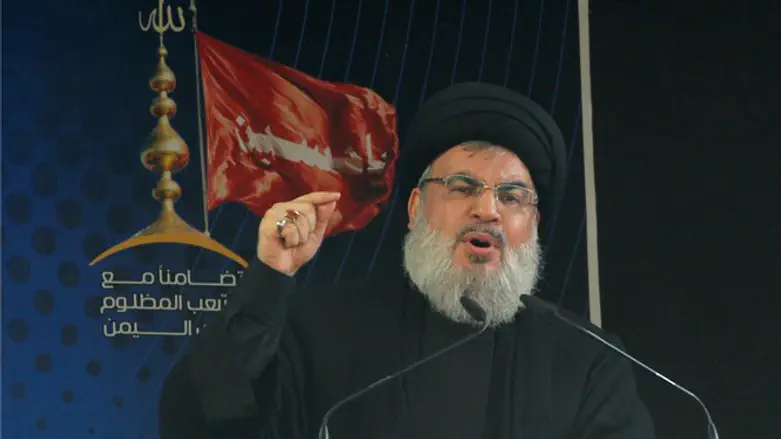
Hezbollah leader Hassan Nasrallah claimed on Thursday that he travelled to Damascus to seek the Syrian president's approval of a jihadist evacuation deal, AFP reported.
"I personally went to Damascus" to see President Bashar Al-Assad, Nasrallah told thousands of his supporters in a televised speech.
Nasrallah has been hiding in an underground bunker since the 2006 Second Lebanon War, though he denies this fact and claims he often changes his place of residence in the utmost secrecy.
His comments come after hundreds of Islamic State (ISIS) group fighters and civilians were evacuated from the border region between Lebanon and Syria earlier this week, under a ceasefire deal and headed toward eastern Syria near the Iraqi border.
The truce deal was negotiated between ISIS and Hezbollah, which has intervened in Syria's six-year war to prop up Assad's government.
The agreement has been criticized inside Lebanon, as well by the U.S.-led coalition fighting ISIS in Syria and Iraq and especially by Baghdad, which protested that the jihadists were being brought to its doorstep.
Nasrallah tried to justify the deal by saying it was necessary to acquire information about the fate of Lebanese soldiers taken hostage by ISIS three years ago.
"We have a humanitarian cause. We wish you to help us," Nasrallah said he told Assad, according to AFP. "We can only know what happened to the soldiers through this compromise."
He said that, before approving the deal, Assad responded, "This will make things difficult for me."
Nasrallah announced last week that the group had captured much of an ISIS pocket on Syria's side of the border with Lebanon in a joint offensive with the Syrian army.
The announcement came days after Hezbollah announced it had used unmanned aerial vehicles (UAVs) during an operation against ISIS and published a video showing the drone strikes. This is not the first time Hezbollah drones have been seen in Syria.
As a result of Hezbollah’s involvement in the Syrian war, Lebanon has suffered from spillover. One of the worst spillovers of Syria's war into Lebanon was in 2014, when ISIS and the Al-Nusra Front briefly overran the border town of Arsal.
In addition, Hezbollah strongholds in Lebanon have been targeted in the spillover.

